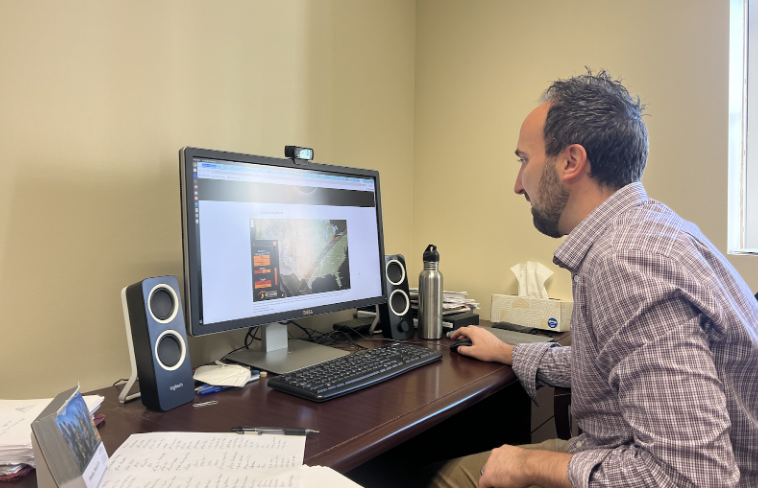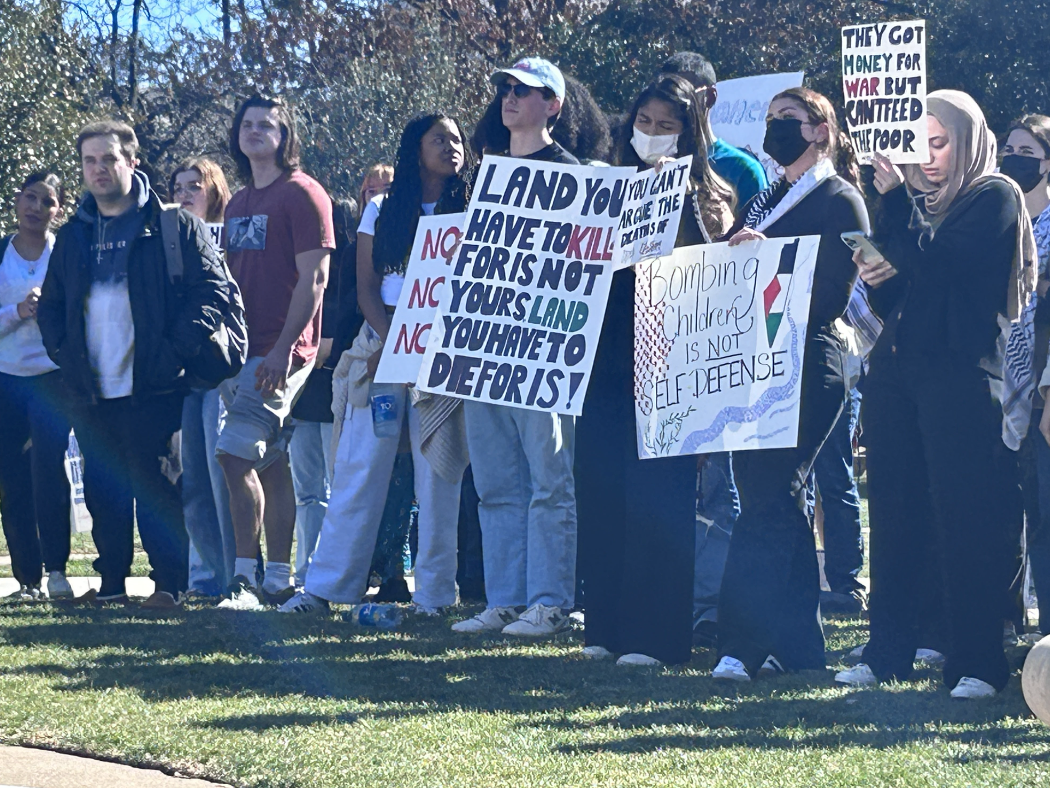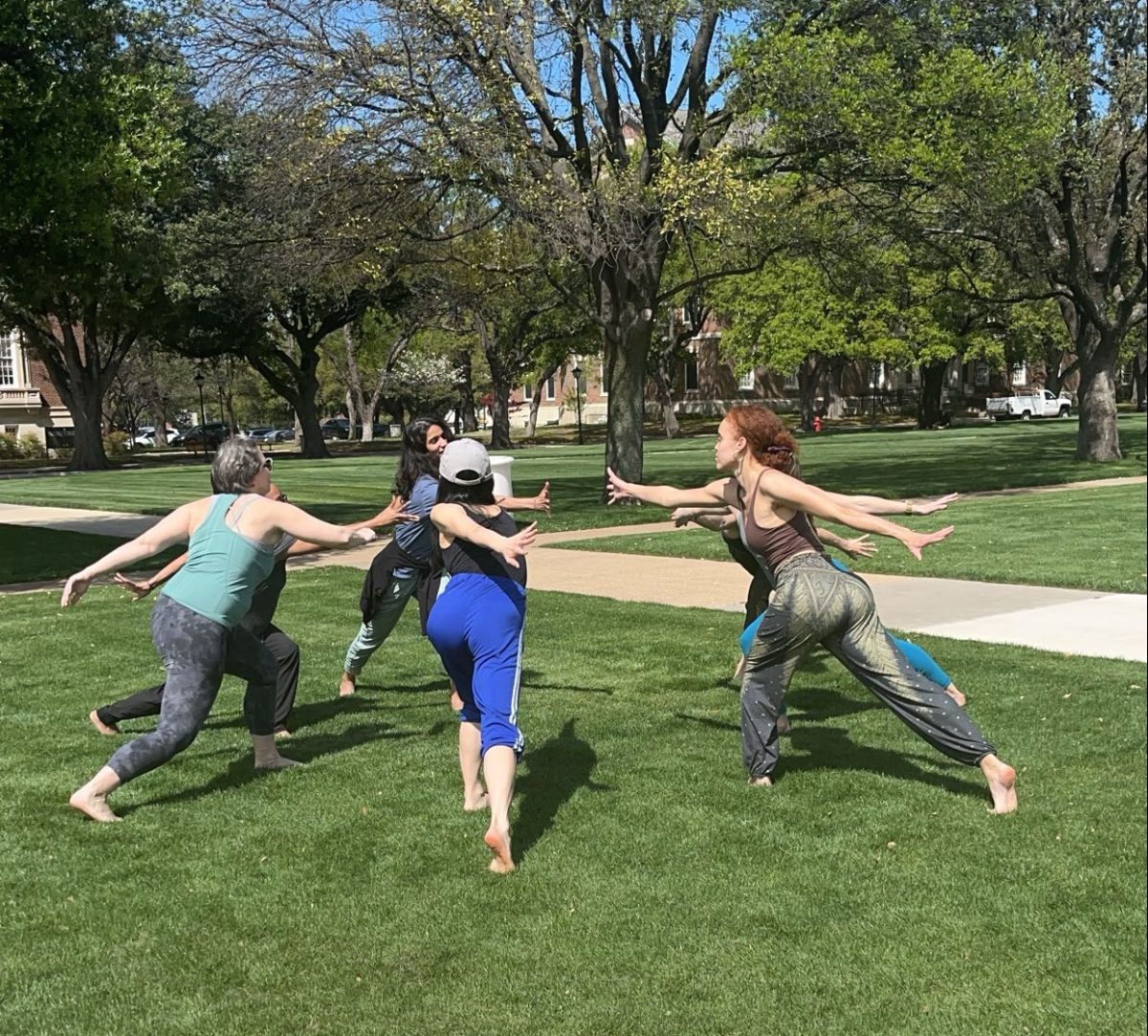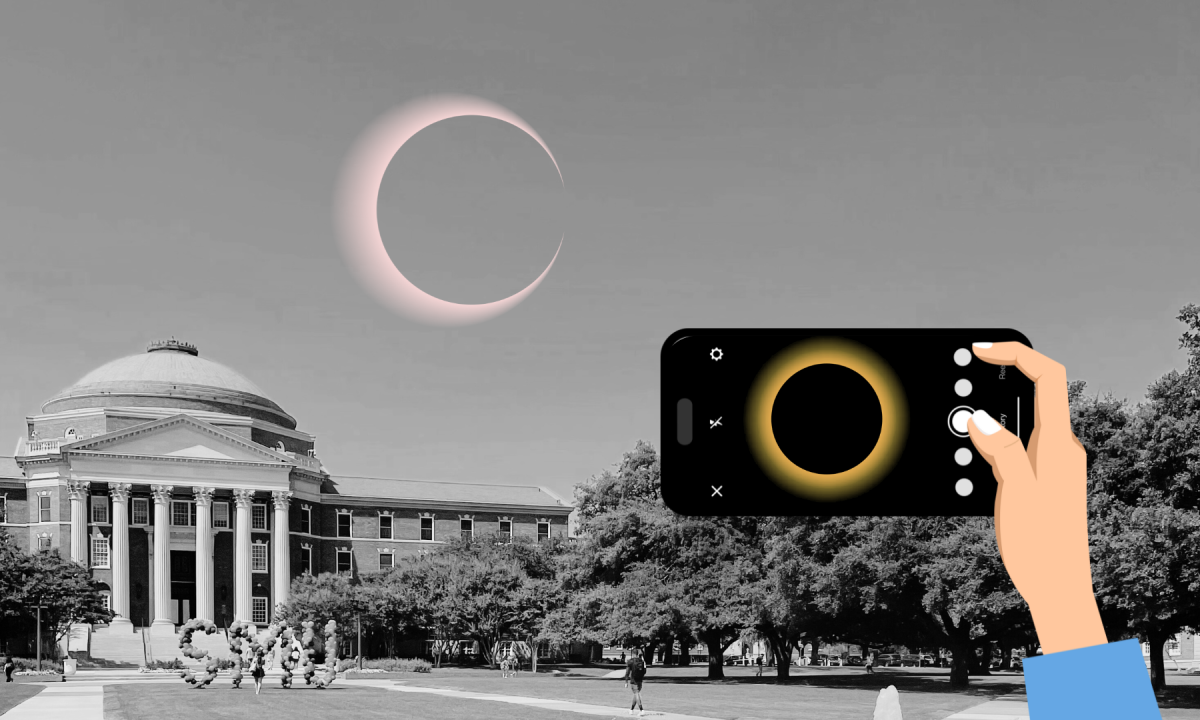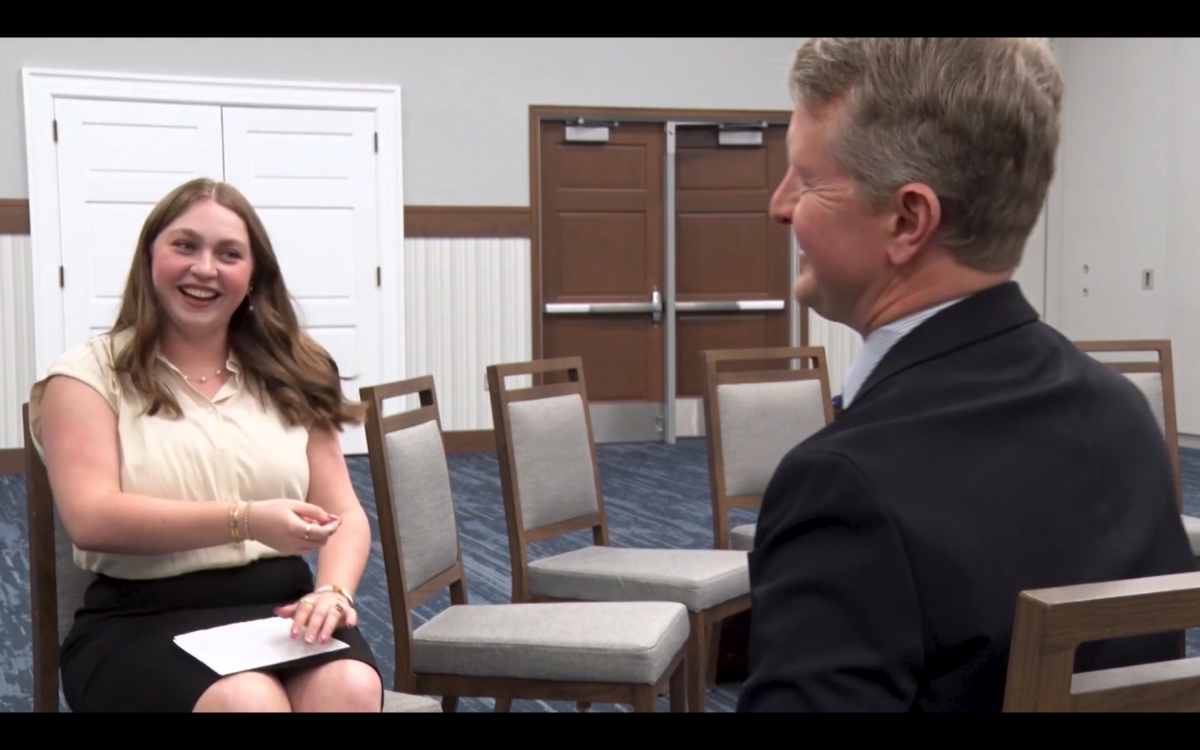The past week has been incredibly difficult for students at Southern Methodist University in terms of the conversations on campus regarding reproductive rights. From April 8 to the 10, Mustangs for Life put up their annual display on Dallas Hall lawn of crosses that represent the number of abortions had in the United States per day on average, according to statistics obtained from pro-life websites.
Every year, I hear from friends that they or someone they care about avoids Dallas Hall lawn or even skips class when the display is up. An Instagram poll from the online publication, I Want The Real, founded by fellow SMU senior Dana Giles, showed that several students had very strong and profane words for Mustangs for Life’s display. In past years, the Mustangs for Life display have inspired viral videos decrying their actions and very successful student-led fundraisers for Planned Parenthood. If the purpose of the Mustangs for Life display is to start a conversation about reproductive rights, they certainly have done so every year they have put up their crosses.
Every year, I hear from friends that they or someone they care about avoids Dallas Hall lawn or even skips class when the display is up.
Once again, I returned to archives hosted in DeGolyer Library, hoping to find a little bit more history about the conversation surrounding reproductive rights on campus. I carefully opened up a file labeled “Protests, Controversies, and Campus Disturbances 1975-” and began to gently sort through all the papers it contained.
In 1981, the SMU Student Senate funded a sexual education booklet dubbed “Between Your Navel and Your Knees.” It was initially developed for students at the University of Houston and then later revised and adapted for SMU with the help of former associate chaplain, Rev. Robert O. Cooper. Even though this booklet is missing many aspects of sexual health concerning identity, it provided a generally comprehensive look at sexual health for young adults in college.
Every birth control option that was available to students in 1981 is listed the booklet.
However, just because “Between Your Navel and Your Knees” was revised and adapted with the input of clergy did not mean it skirted around the ideas of birth control and abortion. Every birth control option that was available to students in 1981 is listed the booklet. Every type of abortion procedure available to students in 1981 is also listed: dilation and evacuation, dilation and curettage, and induced labor with inter-amniotic infusion (also known as late term abortion). Additionally, “Between Your Navel and Your Knees” warned students the risks of self-induced abortions and abortions performed by untrained persons.
It is a common misconception that one must be pro-life in order to be a religious person. The Mustangs for Life display and other religiously charged pro-life demonstrations often fuel this narrative. Not every person who is pro-choice is a religious “none” (atheist, agnostic, etc.) According to the Pew Research Center, Methodists, African Methodist Episcopal Church members, Lutherans, Presbyterians (U.S.A.), Hindus, United Church of Christ members, Buddhists, Jews, and Unitarian Universalists all poll higher for pro-choice views than what the average is for the general population. To utilize a cross to protest abortion does not give credit to the variety of beliefs on abortion within Christianity, and it ignores the religious perspectives of non-Christians.
Not every person who is pro-choice is a religious “none” (atheist, agnostic, etc.)
Before Mustangs for Life set up their display on April 8, I had the opportunity to hear Presbyterian (U.S.A) minister and ethicist Rev. Dr. Rebecca Todd Peters speak at the Reproductive Justice Symposium on April 5, which was hosted by the Dedman College Interdisciplinary Institute. Her book, “Trust Women: A Progressive Christian Argument for Reproductive Justice,” follows in the footsteps of Rev. Dr. Peters’ famed Ph.D. advisor and feminist theologian, Beverly Wildung Harrison, author of “Our Right to Choose,” by offering a moral case for reproductive rights.
In Rev. Dr. Peters’ own words in a conversation we had before her presentation, “‘Trust Women’ takes the concepts from ‘Our Right to Choose’ and updates them for the 21st Century.” In her keynote address, she told the story of the Clergy Consultation Service: an organization of Christian and Jewish clergy that referred women to safe abortion services before Roe v. Wade. It is estimated that the Clergy Consultation Service saved hundreds of thousands of people from medically unsafe abortion procedures that can lead to sepsis and even death.
Rev. Dr. Peters also mentioned that modern day evangelical and Catholic responses to abortion are a relatively recent phenomenon due to traditional view of ensoulment being the moment when the mother can feel the fetus moving. The fervor surrounding abortion really gained traction only during the 20th Century among some groups of Christians. During the question-and-answer portion of Rev. Dr. Peters’ keynote address, Rev. Neil Cazares-Thomas of the Cathedral of Hope (a UCC church in the Oak Lawn neighborhood that primarily serves the LGBTQ+ community) expressed deep concern over evangelical narratives about reproductive rights.
Rev. Dr. Peters also mentioned that modern day evangelical and Catholic responses to abortion are a relatively recent phenomenon due to traditional view of ensoulment being the moment when the mother can feel the fetus moving.
However, why is it that views on abortion are so disparate among Christians in the first place in the United States? I went to a lecture on Dr. R. Marie Griffith’s book, “Moral Combat: How Sex Divided American Christians and Fractured American Politics,” on April 10, hosted by the Center for Presidential History. In Dr. Griffith’s book, she outlines that from the 1920s onward, Christian consensus regarding issues of sexuality and gender roles began to crumble. New interdenominational alliances were formed, with mainline Protestants attempting to make Christianity more progressive and evangelicals and Catholics reaching across the Reformational divide to promote more conservative values together. Dr. Griffith argues this new progressive/conservative Christian divide has split what Christianity looks like in the United States and this schism has spilled over into our political system when it comes to policies on gender, sex, and healthcare.
This schism has spilled over into our political system when it comes to policies on gender, sex, and healthcare.
It was precisely because of this new schism over sexuality and gender roles that I invited the senior minister from my church, Rev. Dr. Daniel Kanter of First Unitarian Church of Dallas, to be the professional panelist on the pro-choice side for “Dialogue, Not Debate,” a joint conversation hosted by SMU’s Feminist Equality Movement and Mustangs for Life.
On the poster for the event, we intentionally omitted what side Rev. Dr. Kanter would represent so the audience would be surprised a clergy person provides non-judgmental interfaith chaplaincy at abortion clinics and is involved with Planned Parenthood at the board level.
While many Unitarian Universalists in 2019 hesitate to label themselves as Christians, the denomination itself has roots in the Reformation and has a long history in the United States, with five presidents affiliated with Unitarian beliefs and the belief that Jesus was simply a human we can learn great lessons from. The denomination is still often associated with the Transcendentalist movement as well. The freedom to view religious texts like the Bible as a guiding metaphor rather than word of God is as American as apple pie and is protected by the First Amendment.
Rev. Dr. Kanter was the only panelist who spends significant time at abortion clinics from the inside as a chaplain. He explained even couples that hold deeply pro-life views based on their religious beliefs have needed to access abortion services in life-threatening medical emergencies. Spiritual and emotional care through chaplaincy can be crucial to the medical experience of abortion, especially in cases like this. People need and deserve a sounding board when making spiritually and emotionally charged decisions regarding their health because the mental affects the physical.
Rev. Dr. Kanter went on to state at Dialogue, Not Debate it is his theological belief that life can be defined by experience, and that life begins at first experience for an individual. Kassi Marks challenged this view from her own theological belief that life begins at conception and implied the best form of birth control is through natural fertility planning that does not affect hormones significantly.
Through all of the conversations that were held this week, it became clear to me that deeply held beliefs on reproductive rights should not be codified into law based on the First Amendment principle of freedom of religion.
Through all of the conversations that were held this week, it became clear to me that deeply held beliefs on reproductive rights should not be codified into law based on the First Amendment principle of freedom of religion. The moral status that we give a zygote or fetus is incredibly influenced by our beliefs and our experiences. If a woman who holds religious or irreligious beliefs that her six-week-old fetus will not be best served by her current circumstances, then a lawmaker who attempts to pass a bill that defines life at conception to prevent her from obtaining a safe, legal abortion is essentially violating this woman’s religious liberty codified in the Constitution.
We are currently having a legislative reckoning here in Texas concerning reproductive rights. A bill that was left pending in committee in the Texas legislature as of April 9, HB 896, would have defined abortion as capital murder, which is punishable by the death penalty under Texas law. Democratic State Representative Victoria Neave advanced another bill out of committee, HB 16, which would create a cause of action against a doctor who does not provide all possible life-saving care for a baby born as the result of a failed abortion. Neave cited her Catholic beliefs for advancing the bill. She recently held a town hall on April 13 at Lakewood United Methodist Church due to constituent concern over her advancing this bill.
Unfortunately for the cause of religious liberty, HB 1071, also known as Marlise’s Law, was left pending in committee on April 10. This bill would have allowed for a pregnant person with an advanced directive to not be put on life support. Marlise Muñoz, the namesake of this bill, was a paramedic that was 14-weeks pregnant when she suffered a pulmonary embolism that left her brain dead. Her legally binding advanced directive left instructions for her not to be put on life support in case of a medical emergency. However, under Texas law, she had to be kept on life support regardless of her wishes due to her pregnancy, despite being legally dead under the definition of death used in Texas. Marlise is now officially deceased. Her fetus was medically unviable as well. Because the subjects of end-of-life care and death are so spiritually and emotionally charged and because advanced directives often are formed with deeply held beliefs, it is extremely unfortunate this bill was left pending in committee.
However, under Texas law, she had to be kept on life support regardless of her wishes due to her pregnancy, despite being legally dead under the definition of death used in Texas.
In order to honor the principles of the First Amendment and the reproductive rights of people, we must make birth control widely available and keep abortion safe and legal. One set of theological beliefs on the beginnings of life cannot determine policy on reproductive rights in a society where individuals have religious liberty. Additionally, we need to recognize there are religious voices that advocate for the right to choose and cite their deeply held beliefs as rationale for that conclusion. To ignore and disrespect the diversity of deeply held beliefs in the United States is essentially trampling over the very things we say we collectively value as a country.
The Daily Campus welcomes opinion contributions from students, faculty, and staff. Submissions are subject to copy editing. Please email submissions to [email protected]. Submissions must include your SMU ID and a cell phone number for verification.









